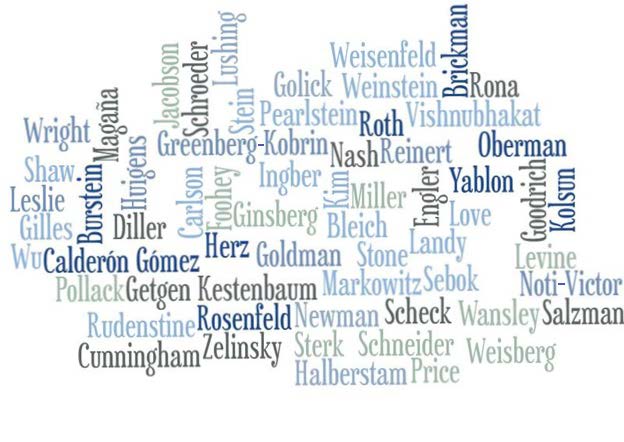Publication Date
2016
Journal
Emory Law Journal
Abstract
In recent years, much attention has been paid to the startling disparities in income and wealth in contemporary U.S. society. The enormous concentration of economic power in the top 1% is the culmination of decades of significant income and wealth gains for the top, combined with stagnant or decreasing growth for the majority - a trend that continues apace. But nowhere is the gap more glaring than in the civil docket, where class actions brought by or on behalf of low-income consumers and employees are on the verge of disappearing.
To be sure, the decline in class actions is only part of the larger story, as procedural and substantive constraints on legal access are visible everywhere - from the “justice gap” and problems of non-representation, to cuts in funding for legal aid and court administration, to heightened pleading standards, increasingly restrictive views of standing to sue, and the modern penchant for the privatization of justice. But the thesis of this essay is that the unavailability of class litigation is disproportionately more harmful to low-income groups - in ways both real and expressive, short- and long-term - than any other, single factor for a number of interrelated reasons. For one, economically-disadvantaged groups are more susceptible to abusive practices in the marketplace and the workplace, suffering disproportionate instances of predatory lending, consumer fraud, unfair wages, and discrimination. More brutally, the impact of class relief - particularly injunctive relief - is more acutely felt by low-income groups. Recent studies show that, to a large and disturbing extent, the poor stay poor. So when members of low-income groups suffer from group-based wrongdoing, they are likely to experience the same or similar wrongdoing again in the future. The failure to detect and deter bad actors who prey on the poor only promotes chronic exploitation and the perpetuation of intractable poverty.
The essay ends by examining an important by-product of the disappearance of low-income claims from the civil docket: as contemporary judges see fewer civil cases brought by or on behalf of poor people, one might expect that they grow will further out of touch with and ill-equipped to manage these claims; and as this reservoir of wisdom empties, judicial attitudes towards the poor harden, growing disdainful and ungenerous. Accordingly, when judges are sporadically faced with the legal claims of low-income groups, it becomes harder to spot (or easier to ignore) patterns of exploitative, abusive conduct by corporate or governmental actors.
Volume
65
First Page
1531
Publisher
Emory University School of Law
Keywords
Lawsuit, Class Action, Low-Income, Poverty, Access to Justice
Disciplines
Banking and Finance Law | Bankruptcy Law | Housing Law | Immigration Law | Law | Law and Gender | Legal Profession
Recommended Citation
Myriam Gilles,
Class Warfare: The Disappearance of Low-Income Litigants From The Civil Docket,
65
Emory L.J.
1531
(2016).
https://larc.cardozo.yu.edu/faculty-articles/260
Included in
Banking and Finance Law Commons, Bankruptcy Law Commons, Housing Law Commons, Immigration Law Commons, Law and Gender Commons, Legal Profession Commons




Comments
The 2015 Pound Symposium: The War on the U.S. Civil Justice System: Articles & Essays